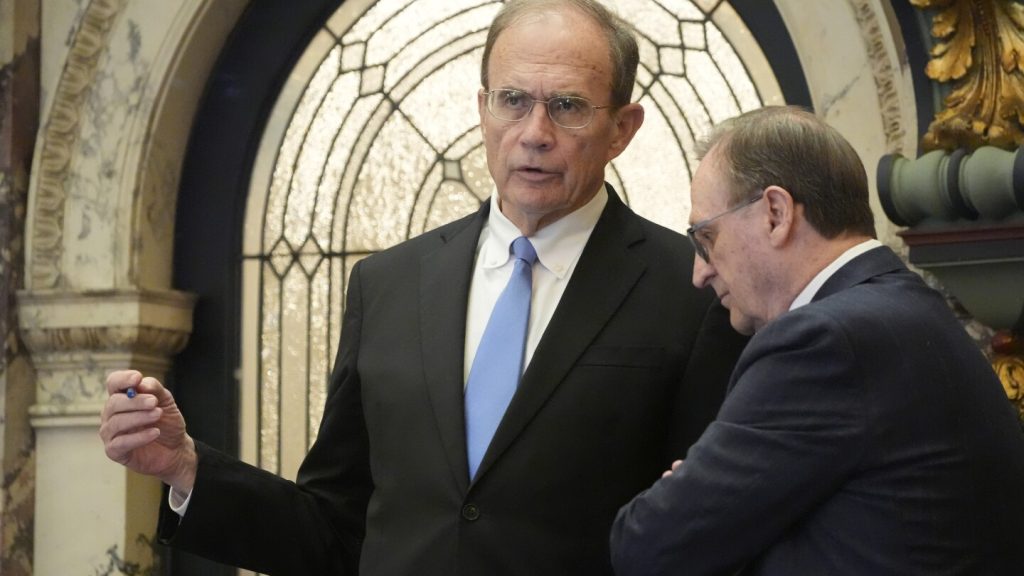Budget writers in the Mississippi Legislature are facing a slightly reduced revenue estimate of $7.6 billion for the upcoming fiscal year, which represents a 1% decrease from the current year. This estimate is based on economic indicators such as employment rates and consumer spending patterns. As legislators work on finalizing the budget in the next few weeks, they will have to make decisions on funding for various services, including schools, prisons, and healthcare. Republican Lt. Gov. Delbert Hosemann emphasized the importance of being prudent with money during this process.
Mississippi is currently in the process of reducing its personal income tax following a law signed by Republican Gov. Tate Reeves in 2022. Reeves aims to completely eliminate the income tax by 2029, but Hosemann indicated that there may not be any further cuts to the tax this year. State agencies have already submitted their budget requests for the upcoming year, with House Appropriations Committee Chairman John Read acknowledging that it is unlikely for all requests to be fully funded. Read emphasized the importance of prioritizing funding based on the needs of each agency, as the budgetary constraints require careful allocation of resources.
As the legislative session progresses, lawmakers will have to navigate the competing budget priorities and make tough decisions on where to allocate funds. With a slightly reduced revenue estimate, there may be constraints on how much funding can be allocated to different services and programs in the state. While there is a desire to support various agencies and services, the reality of budget limitations means that not all requests can be fully met. Legislators will have to balance the needs of different sectors and determine the most effective use of available funds to benefit the state as a whole.
The budgeting process in the Mississippi Legislature involves careful deliberation and negotiation among lawmakers to reach agreements on funding levels for various services. With the current economic landscape in mind, legislators will need to make strategic decisions to ensure that state resources are allocated effectively to meet the needs of the population. As they work towards finalizing the budget for the upcoming fiscal year, legislators will have to prioritize key areas such as education, healthcare, and public safety, while also considering the long-term financial sustainability of the state.
Despite the challenges posed by a slightly reduced revenue estimate, Mississippi lawmakers remain committed to making sound financial decisions that serve the best interests of the state and its residents. By taking a prudent approach to budgeting and carefully evaluating the funding priorities, legislators aim to ensure that resources are allocated in a way that maximizes their impact and benefits for the community. As the legislative session continues, Mississippi residents can expect ongoing discussions and deliberations on the budget, with a focus on maintaining fiscal responsibility and supporting essential services.
Overall, the budgeting process in the Mississippi Legislature reflects a balancing act between meeting the needs of various sectors and managing finite resources effectively. With a 1% decrease in revenue estimated for the upcoming fiscal year, legislators are tasked with making tough decisions on where to allocate funds to best address the needs of the state. As they navigate this process, lawmakers will need to prioritize key areas, consider the long-term implications of their decisions, and ultimately work towards a budget that serves the interests of all Mississippi residents.


